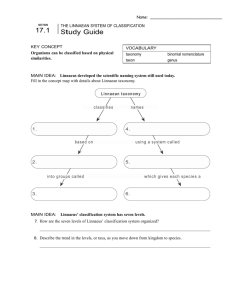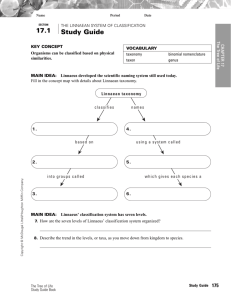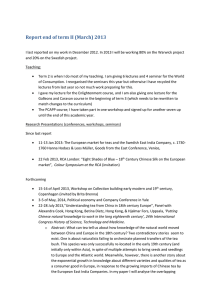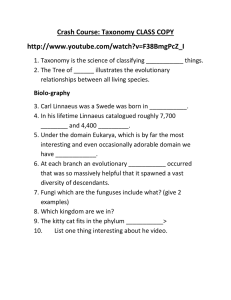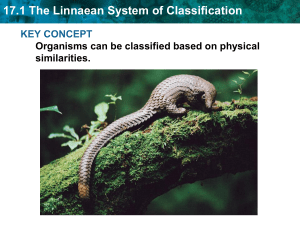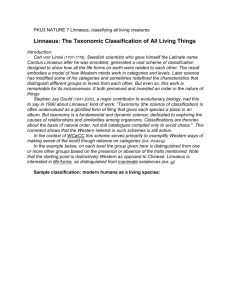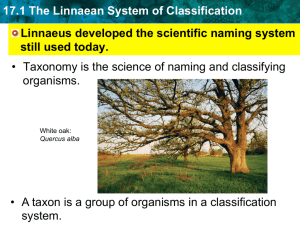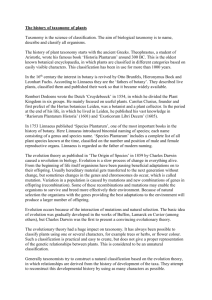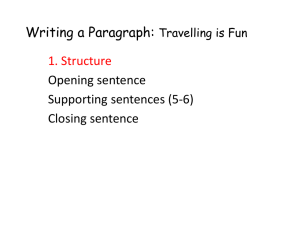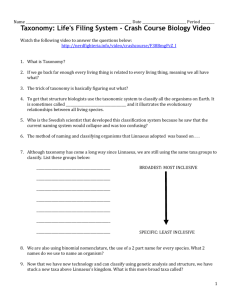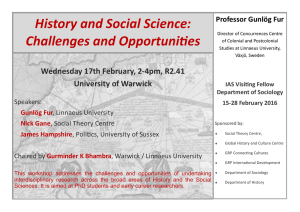Hanna Hodacs
advertisement
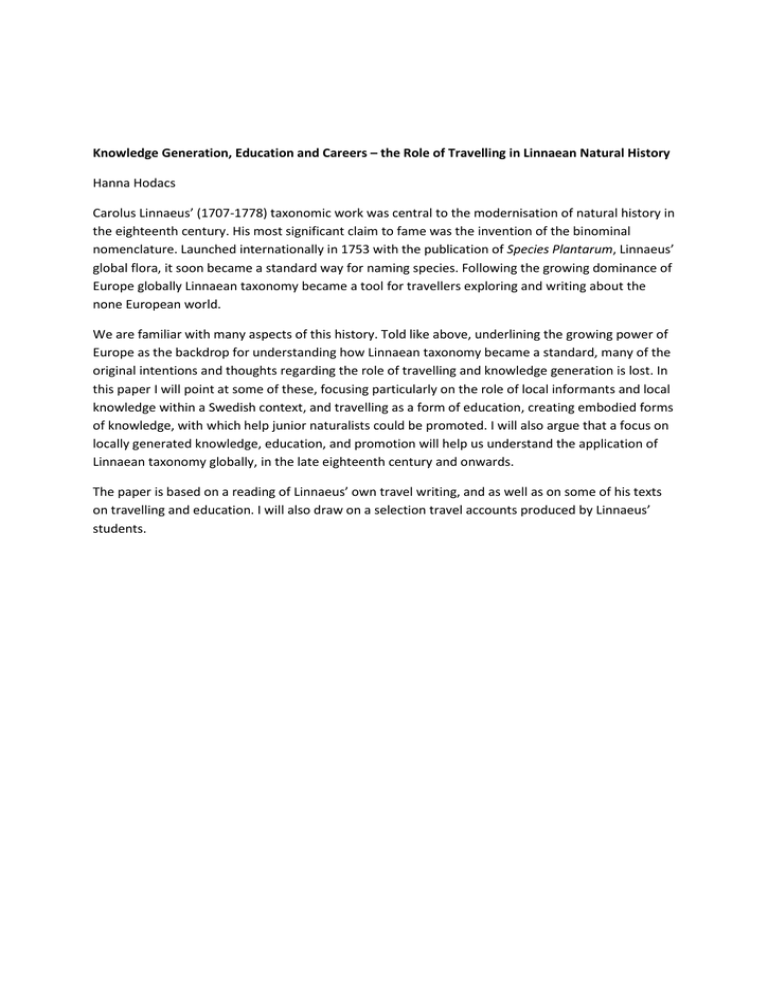
Knowledge Generation, Education and Careers – the Role of Travelling in Linnaean Natural History Hanna Hodacs Carolus Linnaeus’ (1707-1778) taxonomic work was central to the modernisation of natural history in the eighteenth century. His most significant claim to fame was the invention of the binominal nomenclature. Launched internationally in 1753 with the publication of Species Plantarum, Linnaeus’ global flora, it soon became a standard way for naming species. Following the growing dominance of Europe globally Linnaean taxonomy became a tool for travellers exploring and writing about the none European world. We are familiar with many aspects of this history. Told like above, underlining the growing power of Europe as the backdrop for understanding how Linnaean taxonomy became a standard, many of the original intentions and thoughts regarding the role of travelling and knowledge generation is lost. In this paper I will point at some of these, focusing particularly on the role of local informants and local knowledge within a Swedish context, and travelling as a form of education, creating embodied forms of knowledge, with which help junior naturalists could be promoted. I will also argue that a focus on locally generated knowledge, education, and promotion will help us understand the application of Linnaean taxonomy globally, in the late eighteenth century and onwards. The paper is based on a reading of Linnaeus’ own travel writing, and as well as on some of his texts on travelling and education. I will also draw on a selection travel accounts produced by Linnaeus’ students.
